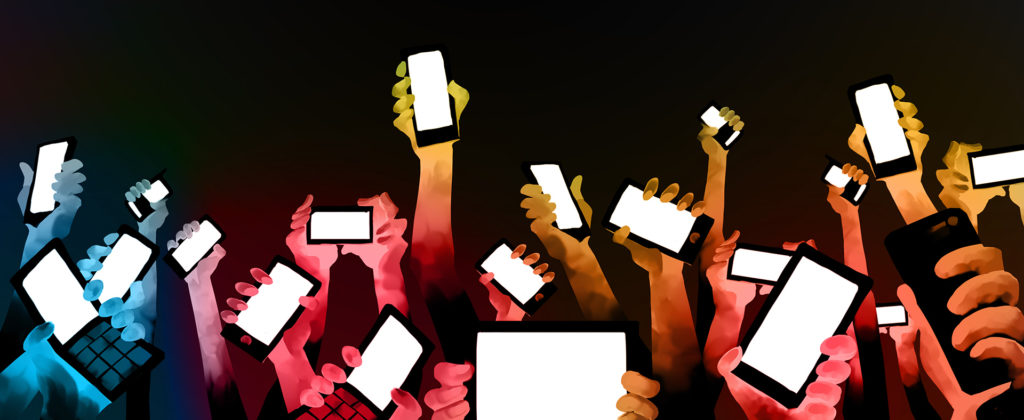Three days after a government minister pledged not to disrupt the internet again in Cameroon, the government appears to have done exactly that. Renewed protests in the Anglophone regions of the country met a violent government backlash that has left at least 17 dead after security forces shot protesters, according to Amnesty International. The Cameroon Journalists’ Union has reported internet throttling and blocking of WhatsApp and Facebook Messenger. Internet service providers in Cameroon have denied an intentional disruption, instead citing problems with their networks.
Last week, Access Now joined Internet Without Borders in submitting a brief to the U.N. Human Rights Committee detailing the human rights damage done by the 94-day internet shutdown that occurred earlier this year, which caused at least $4.5 million in losses to Cameroon’s economy. As we explained:
Shutdowns like Cameroon’s stop free expression when people can’t tweet and newspapers can’t publish online. But they also prevent us from accessing data. Patients can’t find medical advice, students can’t learn, and entrepreneurs can’t research potential markets and investors. This access to information that the internet enables is what shutdowns aim to thwart. The Human Rights Committee should strongly condemn shutdowns in Cameroon and beyond on these grounds.
Some people impacted by Cameroon’s most recent disruption have been able to circumvent the blocks using Virtual Private Networks, indicating this blackout may have taken a different form than the one earlier this year. In that complete shutdown, people were forced to drive for hours to francophone regions to access the global internet.
The telcos Orange Cameroun and MTN Cameroun both notified their customers of technical disruptions over the weekend, without blaming anyone or listing any reasons for the shutdown.
Are you in Cameroon? Share your experience of the internet shutdown with us here (English) or here (en français) or email your story to zak@accessnow.org directly.
Catalan referendum in Spain marred by violence, attacks on expression, and internet disruptions
Spain joined the growing group of nations that have disrupted the internet around key moments in a democracy. As part of a crackdown to prevent a non-binding referendum vote over independence for Catalonia, the government blocked websites and appears to have throttled or shut off the internet in the areas of Cotxeres de Sants de Barcelona and IES Antoni de Martí i Franquès de Tarragona. We are still investigating the full extent of the disruption, but we have seen unconfirmed reports of physical cuts to internet cables and blackouts around specific polling sites. Alp Toker of #KeepitOn coalition member Turkey Blocks identified a limited outage in one region of Catalonia.
Breaking: Evidence of #CatalanReferendum Internet shutdowns emerging; town of Súria offline from midnight https://t.co/gJ6hrOjpJu #KeepItOn pic.twitter.com/H1ii6dmjav
— Alp Toker (@atoker) October 1, 2017
Just like in Cameroon, the disruption in Spain took place amid violence, and 337 people have been injured, according to the local government of Catalonia. Police fired rubber bullets into crowds and used force to subdue protesters. We have found that shutdowns go hand-in-hand with state violence and serve as early warning signs of atrocities, and Spain is no exception. Spain’s anti-protest law, called the Ley Mordaza, which entered into force in July 2015, grants authorities broad powers to detain citizens and block websites.
This is also not the first time that Europe experienced an intentional disruption during an election. Montenegro blocked social media sites during its 2016 vote.
Internet shutdowns do not restore order or protect rights. They violate freedom of expression at scale, harm economies, and prevent emergency services from conducting their work. A new study by CIPESA found that internet shutdowns have cost 10 countries on the African continent at least $235 million since 2015.
Recommendations
In Cameroon, the telcos MTN Cameroun and Orange Cameroun acknowledged the disruptions, unlike the January 2017 shutdown, about which they said little publicly. This positive move, a measure of transparency, is welcome, and should be expanded upon. Telcos have the responsibility to respect human rights online, and we believe more can be done in both Cameroon and Spain. That involves private conversations with the host government and influential figures at the U.N. and International Telecommunications Union, development banks, as well as formal complaints with telecoms regulators, and possibly lawsuits against the governments.
About the #KeepitOn campaign
The #KeepitOn campaign consists of 138 organizations from 57 countries that are devoted to fighting internet shutdowns. Since we launched the campaign at RightsCon Silicon Valley in 2016, we’ve seen major victories: the U.N. Human Rights Council condemned internet shutdowns; 30 governments of the Freedom Online Coalition spoke out against shutdowns, as have the GSMA, the Global Network Initiative, and the African Commission on Human and Peoples’ Rights. And, together with local activists, we have helped to end major internet shutdowns in Cameroon and Gambia.
